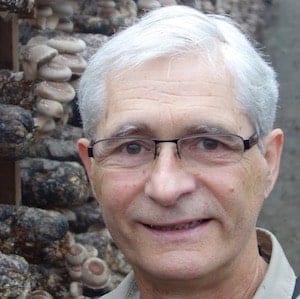Precious and rare medicinal mushrooms like reishi (ling zhi) and cordyceps (dong chong xia cao) used to be available only to royalty, or those who knew how to spot them in the wild.
These medicinals have a long history of use in East Asia and are associated with vitality, longevity and a connection to the spirit world. Even today it is said of the wild forms that “those who buy it don’t eat it, and those who eat it don’t buy it” as it is often gifted in a attempt to curry favor or influence.
Fortunately for us “lao bai xing” (common people) these incredible fungi are available to us via cultivation. Or are they?
In this episode our guest takes us on a deep dive into cultivation and extraction methods, and more importantly, how to read test results so you can better understand the potency of the products you are buying and giving to your patients.
If you use medicinal mushrooms in your practice this episode will help you to better understand the important differences between polysaccharides, beta-glucans, and triterpenoids, and why this is important in the assessment of product potency.
Listen into to this conversation with an ethno-mycologist who has been studying and working with mushroom cultivation for over 45 years.

Jeff Chilton
Jeff Chilton, raised in Pacific Northwest, studied Ethno-mycology at the University of Washington in the late sixties. In 1973 he started work on a commercial mushroom farm in Olympia, Washington. During the next 10 years he became the production manager, responsible for the cultivation of over 2 million pounds of agaricus mushrooms per year. He was also involved in the research and development of shiitake, oyster and enoki mushrooms which resulted in the earliest US fresh shiitake sales in 1978.
In the late seventies he was a founder of Mycomedia, which held 4 mushroom conferences in the Pacific Northwest. These educational conferences brought together educators and experts in mushroom identification, ethnomycology, and mushroom cultivation. During this period Jeff co-authored the highly acclaimed book, The Mushroom Cultivator, which was published in 1983.
In the 1980’s he operated a mushroom spawn business and in 1989 he started Nammex, a business that introduced medicinal mushrooms to the US nutritional supplement industry. He traveled extensively in China during the 1990’s, attending conferences and visiting research facilities and mushroom farms. In 1997 he organized the first organic mushroom production workshop in China.
A founding member of the World Society for Mushroom Biology and Mushroom Products in 1994 and a Member of the International Society for Mushroom Science, Mr Chilton’s company was the first to offer a complete line of Certified Organic mushroom extracts to the US nutritional supplement industry. Nammex extracts are used by many supplement companies and are noted for their high quality based on scientific analysis of the active compounds.
Jeff has a treasure trove of information about medicinal mushrooms as well as plenty of research and scientific information over the Nammex website, and why China is the foremost producer of reishi and cordyceps in the world.
For those interested in the science and chemistry here are some PDF’s on:
New Fingerprinting Methods for Quality Control of Medicinal Mushroom Products
Quality Consistency of Reishi Supplements in the US
Measurement of Beta-Glucans in Mushroom Products
White Paper on Screening for Active Compounds in Mushrooms
Commercial Labeling of Mushroom Products
You can purchase the mushrooms grown by Nammex through their retail division over at Real Mushrooms.
Or pick up their Reishi, Cordyceps, or Five Defenders immune formula over on Amazon.
You don't have access to purchase this item.